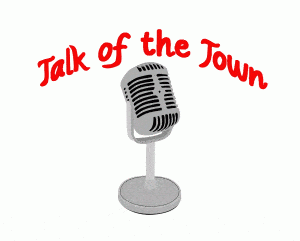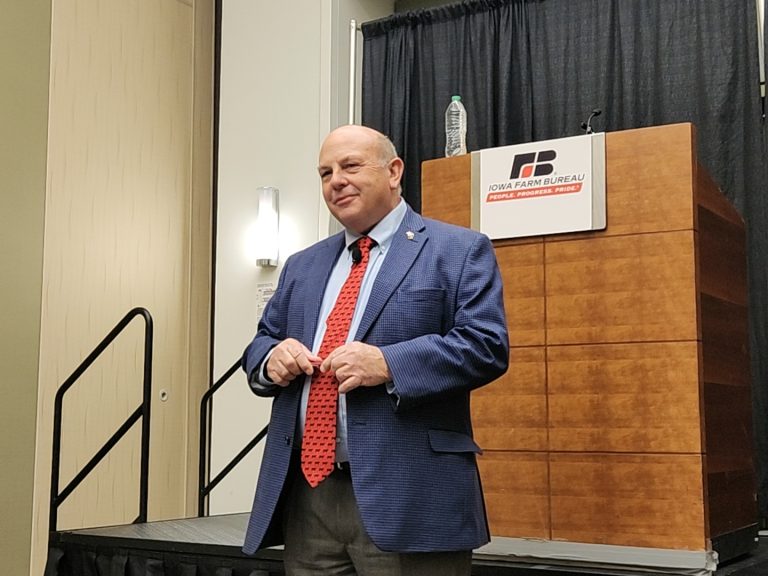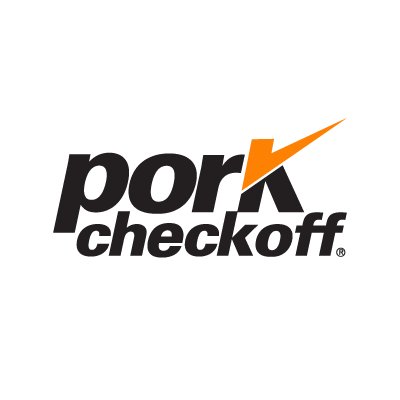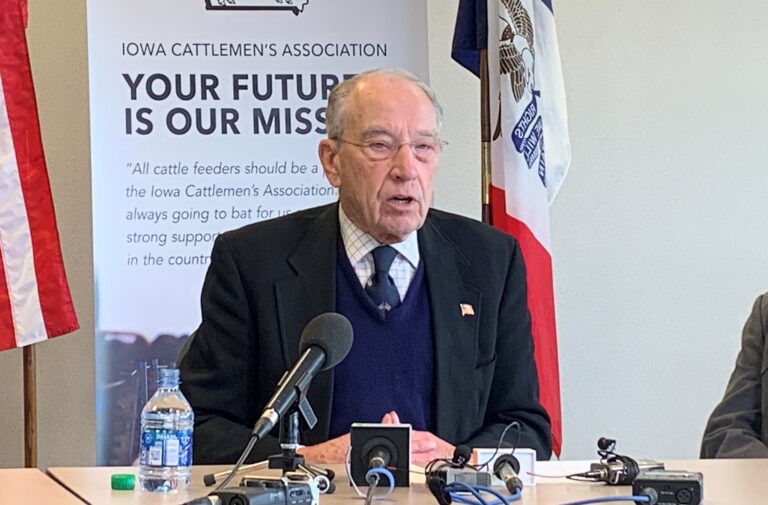IARN — Sen. Chuck Grassley (R-Iowa) along with his colleagues Sens. Jon Tester (D-Mont.), Tina Smith (D-Minn.), Joni Ernst (R-Iowa), Mike Rounds (R-S.D.), Cindy Hyde-Smith (R-Miss.) and Steve Daines (R-Mont.) today introduced legislation to foster efficient markets while increasing competition and transparency among meatpackers who purchase livestock directly from independent producers. This bill will require that a minimum of 50 percent of a meat packer’s weekly volume of beef slaughter be purchased on the open or spot market.
“The lack of transparency in cattle pricing isn’t a new problem, but the negative effects of the fire in Holcomb, Kansas, and COVID-19 have highlighted the need for additional price transparency measures to ensure producers are getting a fair price for the hard work of raising cattle. Food doesn’t come from the grocery store; it comes from tens of thousands of farmers and independent producers who work day and night to ensure families across the country have an abundant supply of food. Independent producers deserve to be paid what their beef is worth,” Grassley said.
“Market consolidation in the livestock industry is making it harder and harder for producers to meet their bottom lines, especially as large packers rely on fewer spot transactions to purchase live cattle at the farm gate,” Tester said. “This bill will force meatpackers to engage in more spot transactions, bringing up formula prices and making them more accurate while giving Montana producers and feeders more flexibility and transparency when they bring their livestock to market.”
“We must help livestock producers in Minnesota and nationwide get a fair and accurate price for their animals,” Smith, a member of the Senate Agriculture Committee and leader of the bipartisan Senate Rural Working Group, said. “It’s important to promote transparency and improve efficiency in the livestock markets, and our bipartisan bill will go a long way to achieving these goals.”
“At a time when Iowa’s cattlemen are facing struggles, due to COVID-19 and ongoing challenges in the industry, this bipartisan solution is a good step toward increasing transparency and competition that will allow our cattle producers to earn what they’ve worked so hard for,” Ernst said.
“Even before COVID-19 hit our country, we had serious concerns about price discrepancies in the cattle market. Cattle prices in South Dakota are affected by the average negotiated cash trade nationwide which has dropped dramatically over the past 15 years. The decrease in cash trades has reduced price discovery. In order to establish a fair cattle market for cattle producers, real, vigorous price discovery is needed. Our legislation will provide much-needed transparency to the cattle industry to make sure producers are paid fairly for their products. This is only one piece of what needs to be fixed in the cattle market, but it’s an important step forward,” Rounds said.
“It is essential to restore a reasonable degree of transparency in the cattle marketplace, and this bill seeks to do that. These common-sense reforms are important to the overall health of the industry, and key to the long-term sustainability of an abundant U.S. beef supply. Producers deserve fair and transparent pricing. It is apparent in this COVID-19 pandemic that packers are taking advantage of producers,” Hyde-Smith said.
“In light of the significant disruptions taking place in the cattle markets, it is critical that the market is as transparent as possible. As fewer cattle are sold on a negotiated cash basis, this bill will help support price discovery and increase transparency in the cattle markets and help ensure that Montana ranchers are treated fairly in the marketplace,” Daines said.
“The Iowa Cattlemen’s Association remains committed to finding solutions for Iowa’s beef business and in this case, it means a more transparent market for all participants. For too long, many independent cattle producers like that of Iowa’s farmer feeders have committed the time, effort, and expense of doing what’s best for all participants in the fed cattle market – participating in the cash market. Unfortunately, as our producers in Iowa and others across the country have done so, we’ve witnessed a consolidation of participants within the packing industry that has limited cash trade and hence producer leverage in the cattle market. This bill will serve as a mechanism to increase price discovery and transparency, ultimately providing the opportunity for producers in our state and many more to capture a premium for the high-quality cattle we raise in Iowa and the rest of the Midwest. In the current cattle market climate and for too long, the cash trader working for the good of the cause has unfortunately been cut short in many cases as a residual supplier. And even though regional supply they provide reaps greater retail, foodservice and export demand, prices paid at the gate are the lowest compared to others. Traditionally, the cattle industry does not support increased regulation. But at this point, we have exhausted all other options, and we cannot allow Iowa’s cattle producers to continue carrying the burden of price discovery for the entire industry – especially when it does not bode well for producer leverage. The Iowa Cattlemen’s Association is grateful for the support and leadership of Iowa’s senators on this topic and many others that affect our producers every day,” Matt Deppe, CEO of Iowa Cattlemen’s Association said.
Grassley first introduced this bill in 2002 with former Sen. Russ Feingold (D-Wis.). After hearing from constituents expressing concern that there is currently a discrepancy between high grocery store shelf prices and simultaneous decreased cattle prices, Grassley joined his colleagues to re-introduce this legislation. This bill will make systemic changes to the cattle industry to ensure the longevity of independent producers, which will protect our country’s beef supply.
Story courtesy of the Iowa Agribusiness Radio Network.











